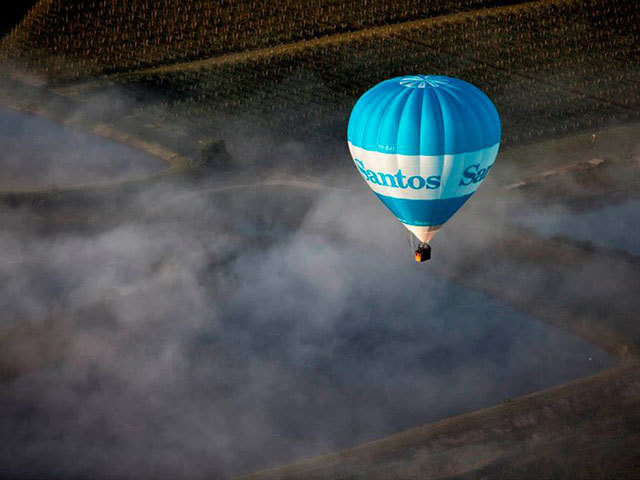
Santos has approved US$235 million worth of investment for an infill drilling campaign that will extend the life of the Bayu-Undan field offshore East Timor. As a result, the Santos-led Darwin LNG export plant, which is fed by the aging field, will not need to be shut down while new supplies of gas are developed.
Production from Bayu-Undan was initially expected to stop in 2022 without new investment. However, the investment decision by Santos, which became the operator of the field in May 2020, after buying out ConocoPhillips, signals there could be more scope left to extend the life of the asset.
Significantly, without the field extension, Santos would have had to maintain the Darwin LNG facilities in northern Australia without any gas supplies for around three years, until the nearby Barossa project could be developed as backfill. Shutting down and restarting the export plant would have been very costly, Andrew Harwood, Asia Pacific research director at Wood Mackenzie, told Energy Voice.
Santos said the infill programme includes three production wells that will add over 20 million barrels of oil equivalent gross reserves – about 2% of the original reserves – at a low cost of supply. However, the Adelaide-based company did not indicate how long the life of the field would be extended.
Analysis from Wood Mackenzie estimates the three wells should add around three years of production. This would keep gas supplies flowing to the Darwin LNG plant until 2024/2025. The Santos-led Barossa project, which is close to a final investment decision, is expected to start up around 2025/2026.
The extra wells will not extend production alone, but they will supplement existing volumes, thereby keeping production above economic thresholds, said Harwood. “The wells should come online pretty quickly, so payback will be pretty rapid,” he added.
The life extension will also be welcome news for East Timor. Revenues from Bayu-Undan have fed a sovereign wealth fund that has underpinned the country’s economy. But as production wanes so has the nation’s revenues.
Although Bayu-Undan does not have enough gas to support Darwin LNG by itself, if Barossa is used as backfill, there is no reason why Santos could not continue operating Bayu-Undan with a reduced output for more than three years if more reserves can be identified.
Santos high graded the three production wells to be drilled from a list of about 15 identified opportunities. Future gas will be found within mostly shallower zones and distal edges of the field, according to the company.
Moreover, East Timor could consider offering improved fiscal terms to help entice Santos to invest in further infill drilling that could extend the life of Bayu-Undan.
East Timor had pinned its hopes on developing the Woodside Petroleum-operated Greater Sunrise field, which straddles Australian and East Timorese seabeds, to boost future government revenues as Bayu-Undan is exhausted. But the Sunrise project remains in limbo as East Timor and Woodside have failed to agree a development plan.
ConocoPhillips, a former partner in the Greater Sunrise consortium, wanted to use gas from the field as backfill for the Darwin LNG plant, but after the Timorese rejected this plan, the US major sold its stakes in Bayu-Undan, Barossa and Darwin LNG to Santos last year. East Timor’s national oil company TimorGAP purchased ConocoPhillips’ interest in Greater Sunrise in 2019.
Industry observers believe the most likely development option for Greater Sunrise gas will be as backfill for the Ichthys LNG plant or as supply for a second yet-to-be built liquefaction train at Darwin LNG in northern Australia post 2030.
Santos currently has a 68.4% interest and operatorship in Bayu-Undan and Darwin LNG, which will reduce to 43.4% upon completion of a 25% sell down to SK E&S, once a final investment decision is taken for Barossa.
SK E&S currently holds a 37.5% interest in the Barossa project. Santos’ sale of interests in Darwin LNG and Bayu-Undan to SK E&S advances partner alignment for the development of Barossa, which remains a key priority for both companies.
The Bayu-Undan field lies about 500 km off the coast of Darwin in the Timor Sea. Gas produced from the field is transported to the 3.7 million tonne per year Darwin LNG facility onshore at Wickham Point. Following the completion of the deal, project shareholders will include Santos (43.4% and operator), INPEX (11.4%), Eni (11%), JERA (a 50:50 joint venture between Japanese power companies TEPCO Fuel & Power and Chubu Electric Power Company) (6.1%), Tokyo Gas (3.1%), and SK E&S (25%).
Earlier this month, Eni halted the sale of its Australian gas assets, as well as its stake in Bayu-Undan, after failing to attract bids near the company’s valuation. Industry sources believe it is plausible that Santos’ decision to extend the life of Bayu-Undan also motivated Eni to pause its sales process until the value of the asset crystallises.
Eni has no stake in Barossa but is expected to receive a share of a third-party processing fee through its stake in Darwin LNG, operated by Santos.
The Italian company wants to divest non-core assets such as those in Australia and Pakistan to raise cash following the pandemic-led global downturn and the company’s drive to focus on cleaner fuels. Unlike its big U.S. oil peers, Eni is pursuing an aggressive push into renewable energy.